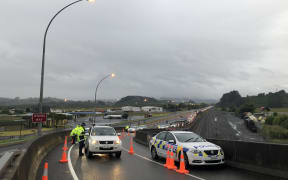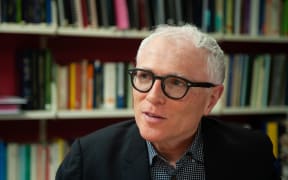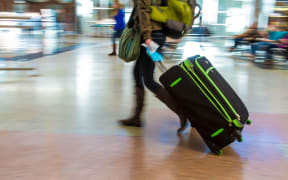The latest Covid-19 cases have reignited calls for tougher border controls and mandatory, daily saliva testing for border workers.
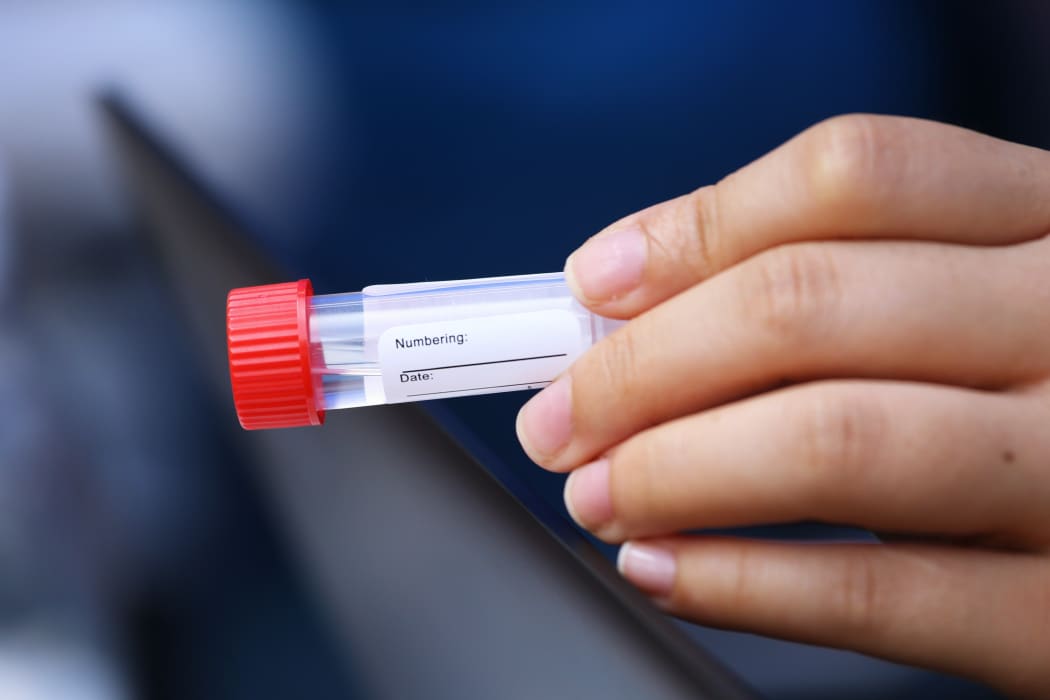
New Zealand's leading public health experts are calling for saliva testing at the border to be stepped up significantly. Photo: AFP
The latest community cases - a mother, a father and a daughter - have the UK variant of the virus according to genomic sequencing, but there are no matches to positive cases recorded in managed isolation facilities.
Prime Minister Jacinda Ardern said the exact source of the infection was still unknown.
Read more on the latest Covid-19 outbreak:
- Follow RNZ's live blog for the latest Covid-19 updates
- View updated locations of interest here
- Alert Level 2 and Level 3: What they mean
Saliva testing
New Zealand's leading public health experts are calling for saliva testing at the border to be stepped up significantly, saying it's worked well as an added protection in other countries, including Australia.
Professors Michael Baker and Nick Wilson from the University of Otago are arguing for compulsory "daily PCR-based testing of saliva for MIQ [Managed Isolation and Quarantine] workers".
In a paper containing 12 recommendations to make the border safer, they say this option could also be "explored for travellers in MIQ in addition to the current testing regimen to allow for comparative assessments".
Prof Wilson said New Zealand should have moved from weekly testing long ago, and should be saliva testing border staff daily.
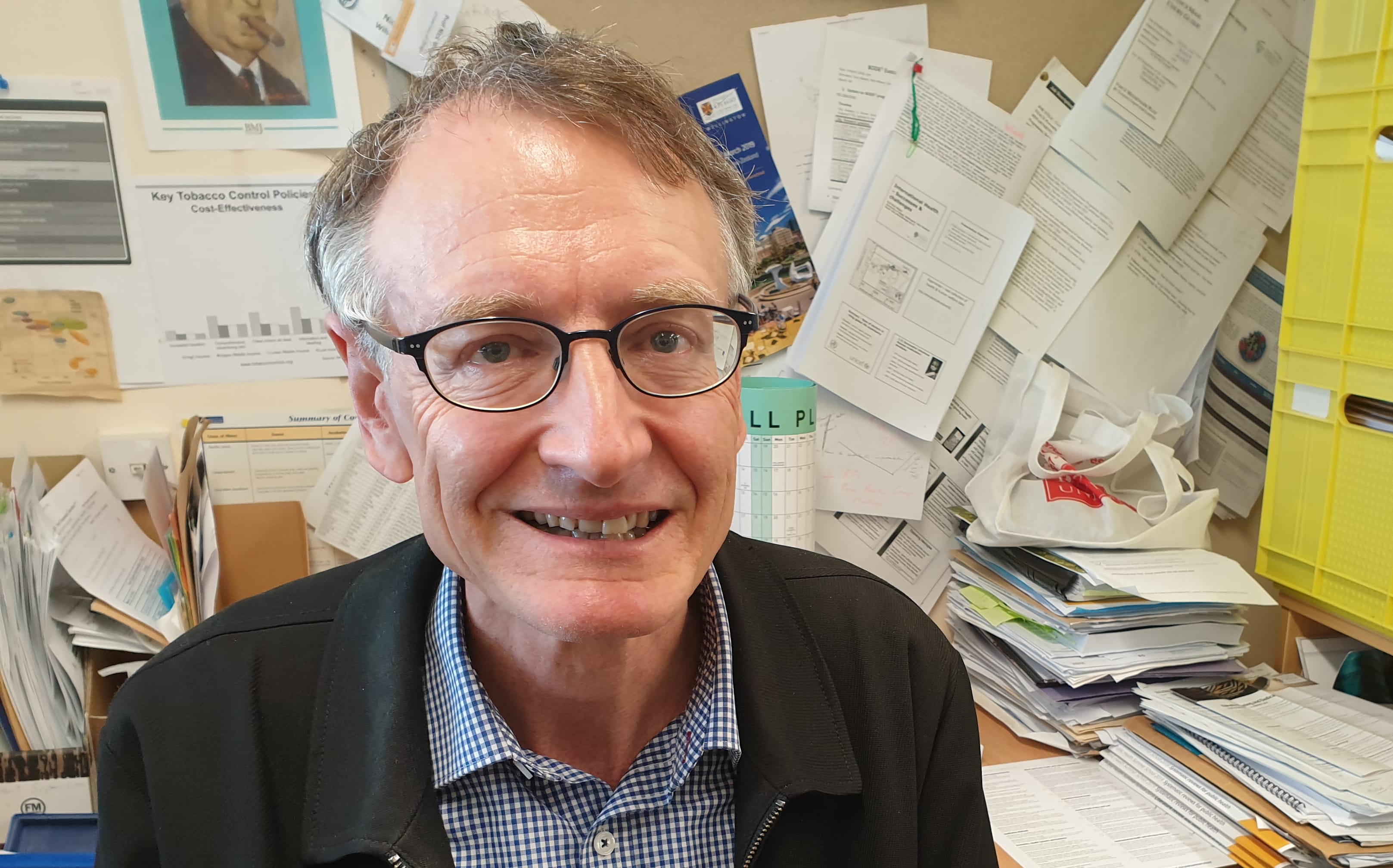
Professor Nick Wilson. Photo: RNZ Insight / John Gerritsen
"The data I've seen suggests it may be, just may be, as reliable [as PCR tests via nasal swab], but even if it is less reliable, because it's done every day, it's probably far superior to just weekly testing ... and it's much less onerous on staff.
"Other countries have been using this for months now. "
Otago University epidemiologist Professor David Skegg said even if there were shortcomings, doing it daily would help compensate.
"If you're doing it every day it'll be better... also it'll give us an earlier warning that we need to act."
Any lack of capacity for laboratory processing needed to be sorted out: "I have the impression that perhaps some of our labs don't have the equipment that enables saliva specimen to be processed as quickly for PCR testing, but we need to get that equipment", he said.
His sense was New Zealand was "lagging behind Australia", including on daily saliva testing, and we need "to stop dragging our feet and get on to that quickly".
Speaking on RNZ, Ardern said increased saliva testing "could and is" being stepped up, but there were still questions about its accuracy compared with throat or nasal swabs.
"We can't really afford to have a tolerance for false negatives because of our system," she said.
However, they are looking to use both saliva and swabbing on a "trial basis" to see if they can "get a level of accuracy up with saliva testing", and she believed that was already in place in some of the more high-risk MIQs.
The Opposition also wants to see daily mandatory saliva testing at the border, with National pledging to support any necessary regulatory or legislative changes.

National Party leader Judith Collins and ACT leader David Seymour. Photo: RNZ / Samuel Rillstone
Leader Judith Collins said saliva testing should be compulsory at MIQs and for the people staying in the facilities.
"It's simply unacceptable that people are still allowed back into New Zealand and simply have to stay longer in quarantine before they're allowed back out into the community," she said.
"The time is well past for us as a country to have constant threats of lockdowns and economic ruin for small businesses and their staff."
ACT also backs daily mandatory testing beginning "immediately ... and apply to all people who are within one or two degrees of separation of the border".
It said the government should work with the private sector to ensure labs had the ability to process large quantities of saliva tests.
Further border restrictions
Prof Wilson also said the numbers coming in to New Zealand should be restricted to humanitarian cases until New Zealand had levels of vaccination up in the community.
"I think that's a reasonable argument now that we've had the experience of 11 border failures, including the large Auckland August outbreak, costing hundreds of millions of dollars."
Prof Wilson said legal scholars had pointed out there were ways of delaying other New Zealand citizens' return to the country in a "legally appropriate way".
When asked earlier this year whether the government would consider limiting arrivals from high risk areas like the United Kingdom or South Africa, Ardern said "no other country ... has ever barred their citizens from being able to return to their country, because if you do that you're essentially leaving your own people stateless."
She said others were "playing catch-up" with the policy New Zealand had in place, that "only permanent residents and citizens, generally without exemption, are able to enter into the country".
Sir David highlights "the importance of tightening up our procedures, both in terms of protections at the border" but it's not all on the government, with "complacency in the community... I hardly see anyone using the QR code as they go into places", he said.
However, he also said he believed New Zealand had a social responsibility towards citizens in dire situations overseas, and he was not as gung ho about limiting numbers of returnees.
Other recommendations in the paper co-authored by Prof Baker and Dr Leah Grout include only using MIQ in large cities for the "lowest risk travellers", eliminating the use of all shared spaces in MIQ, improving ventilation systems, and prosecuting people who breach MIQ rules.



